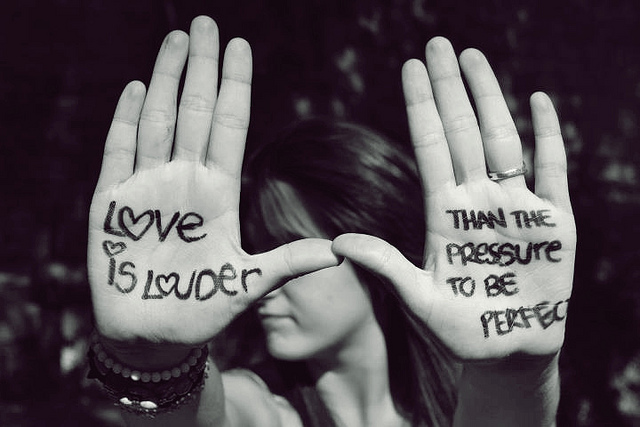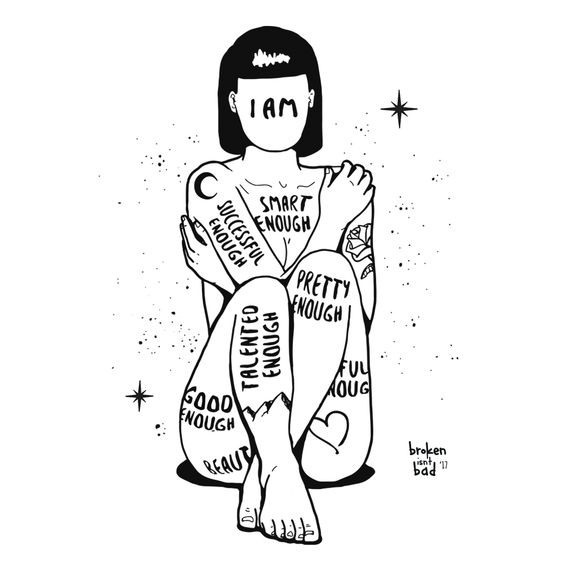
“Perfection is unattainable, yet pursuing perfection will lead to excellence.”
Perfection’s pressures: the perfect friend, the perfect mother, the perfect sister, the perfect daughter. Women may be cast in a variety of wonderful roles. Filling even one of these roles, let alone all of them, can be tough. Whether it’s other people’s expectations or our own, the pressure to be the ‘perfect’ everything may be overpowering.
Feminism was supposed to be about giving women (and men) the freedom to live their lives their way. However, it has now been twisted and warped into a preposterous expectation that every woman must be the best she can be in every area, realizing (or even beyond) her full potential.
“What do you envision in your mind’s eye when you think about the ideal woman?
She’s got a high-flying profession, a happy marriage to a handsome, successful man, two lovely children, and she’s also drop-dead gorgeous with a size 10 figure to boot. That’s a lot of accomplishments in one lifetime, and while I’m sure those women exist somewhere on the earth, keeping all those balls in the air at the same time must be hard.
The problem is that while most women aspire to have and be all of those things, only a small percentage of us will be able to achieve all of them in our lifetimes, and even fewer will be able to do so simultaneously.
As a result, millions of women are starting their lives with the goal of attaining perfection but are doomed to fail. For first-generation feminists, being a homemaker or a career woman was fundamentally an either/or situation. They were assured they could “have it all” for the second generation.
Now the third generation is under even more pressure to have it all: the perfect job, the perfect family, and the flawless appearance at all times. While women must achieve a variety of criteria to be considered successful (whether by men, other women, or in their own eyes), men usually just need to meet one: having a solid job with a big salary. It makes no difference how terrible his personal life is or how he appears. These are two stresses that males scarcely notice, but that many women live with every waking hour.
They must be self-sufficient and intelligent, with a track record of straight A*s in school, a decent degree, and then a high-flying career. They must, however, have a perfect home and a loving relationship with a prosperous man. They must also have a stunning body, with a flat tummy, thin legs, and large, pert breasts.
Even after having two children. They also have to be seen in the most up-to-date designer outfits and unwalkable heels, even if the price tag is well above their means. Reading that list of obligations, let alone carrying them out every day, is taxing. Despite this, millions of women aspire to be the ideal lady with the ideal life.

The feminist revolution, we’re told, is to blame for this. Feminism was supposed to be about giving women (and men) the freedom to live their lives their way. However, it has now been twisted and warped into a preposterous expectation that every woman must be the best she can be in every area, realising (or even beyond) her full potential.
This meant that many women assumed the tasks of their dads or grandfathers, working and earning a living, while simultaneously raising children and handling the majority of home chores. Men were never expected to play both roles, and even if they did, they were never expected to be good at both! Women, on the other hand, are assessed harshly by both sexes in nearly every aspect of their lives, and reaching the finish line in the race for perfection is far more difficult for women than it is for males.
And the pressure on women to be perfect is felt in both public and private areas of their lives. A full-time employee who takes his children to the park on a Saturday morning is praised as a hero father. Start the parade with the trumpets! Meanwhile, a mother who works full-time but misses only one after-school activity for her child will be judged as Not Good Enough by the other mothers as well as herself.
For many working mothers, “guilt parenting” has become the norm. Women who choose to be stay-at-home mothers are labelled as traitors to The Sisterhood in the workplace, while child-free women who establish high-flying careers are stigmatised as selfish.
Meanwhile, the many millions of working mothers caught in the middle who choose to scale back their career ambitions when they have young children and thus fail to break through the glass ceiling at work are dismissed as failures, despite recent research from the Edelman Womanhood study powered by Edelman Berland showing that most women still prioritise their family because it makes them happy.

The pressure to seem flawless is added to all of this pressure at work and at home, and it begins at a young age when girls are urged to “be good” and complimented for being “beautiful.” They are then bombarded with a bewildering selection of “ideal” female faces and bodies from every magazine, TV screen, billboard, music video, and movie for years. Is it any surprise, then, that so many women diet constantly and despise their appearance? Yet, without airbrushing and plastic surgery, that ideal of the perfect female form is unhealthy and unrealistic for 99 percent of women.
The icing on the cake is media images of celebrity mothers squeezing back into their size eight jeans the day after giving birth, as well as rose-tinted glimpses into the wonderful lives of friends and acquaintances on Facebook and other social media, and women can be left in no doubt that everyone else is living a much better life than they are.
Women’s goals and will to succeed should have been boosted by the desire to live a flawless life, but it has had the exact opposite impact. It has shattered their confidence and paralysed them with dread of failure, forcing them to rethink their own decisions and definitions of “success.” Unfortunately, when women are asked to imagine their ideal woman, the last person they think of is the lady in the mirror.

Blog By: Saloni Lad

